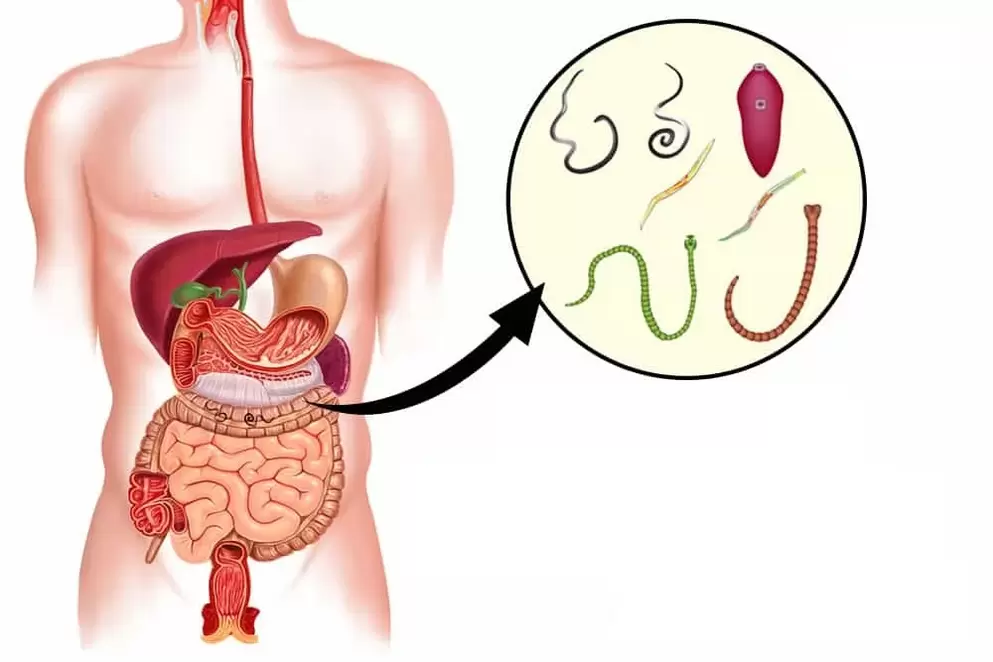Worms are worms that live in humans or animals. They completely negatively affect the entire body or specific organs and have a devastating effect on health.
reason
This disease manifests itself in different ways. This is affected by what species the worms belong to, their location in the body, and their number. Helminthiasis is usually characterized by weight loss, weakness, dizziness, and excessive irritability. If the worm is in the intestine, it is accompanied by constipation, diarrhea, nausea and possibly vomiting.
When parasites in the liver-jaundice complexion and edema; if in the lungs, cough and nasal discharge appear. For any type of disease, activity and performance will decrease. As for children, children’s physical and mental development may be disturbed, with developmental delays, puberty and memory problems. This disease is caused when worm eggs enter the human body. We can pass dirty fruits and vegetables, half-cooked meat and fish, and most often unwashed hands.

symptom
People infected with worms, depending on their type, can occur when eating uncooked animal meat infected with eggs and larvae, or when the eggs and larvae enter the human body and develop in the soil. Here, they develop into adults.
The number of worms in humans with advanced disease may be very high. Adult worms and their eggs can be excreted with feces, which is the main symptom for identifying the cause of the disease. In addition, there are more complicated diagnostic methods based on blood tests, sputum, etc. , all of which are performed in hospitals. When infected with a worm, it can be:
- General malaise and weakness;
- Rapid fatigue, increased or decreased appetite;
- Nausea, vomiting, severe abdominal pain, rapid weight loss;
- Diarrhea, release of worms in the stool;
- Itching in the anal area;
- sleep disorder.
diagnosis
To determine how to treat worms, the pediatrician prescribes:
- General analysis of feces;
- General blood analysis;
- Intestinal X-ray examination;
- Scrape the skin from the perianal area.
The following worms are most commonly found in humans: pinworms, roundworms related to roundworms, and various types of tapeworms (taenia) related to tapeworms (taenia). The main sources of infection are dirty hands, unwashed fruits and vegetables, untested food, contaminated water and flies.
treatment
The treatments needed for worms include:
- Antiparasitic drugs;
- Adsorbent
- Enzymes;
- Immunomodulator
- Hepatoprotective drugs.
If you do not determine how to get rid of the worm in time, there is a risk of complications:
- jaundice;
- intestinal obstruction;
- pancreatitis;
- Purulent skin lesions;
- anemia.
prevention
In order to prevent roundworm infection and spread, one should pay attention to personal hygiene, wash hands frequently, wash fruits and vegetables frequently, and keep toilets clean. In order not to face the problem of how to remove the worm in the future, it is recommended:
- Comply with personal hygiene rules;
- Wash the product thoroughly before use;
- Perform necessary heat treatment before eating meat, fish, and seafood;
- Supervise children during play (so as not to put objects on the floor in their mouths).






































